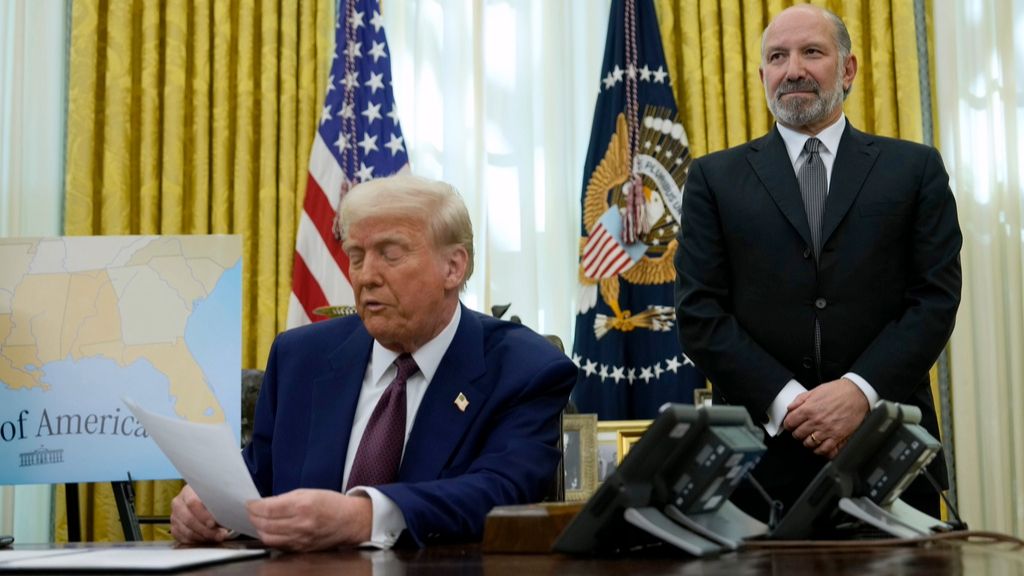As car makers begin to drop AM radio from new models, there is a bipartisan push in Washington to preserve the century-old medium.
On Tuesday, a House committee will hold a hearing to query witnesses from the radio and auto manufacturing industries, as well as an emergency management official, on the value of keeping AM radio on the road as the 21st century rolls on.
What You Need To Know
- On Tuesday, a House committee will hold a hearing to query witnesses from the radio and auto manufacturing industries, as well as an emergency management official, on the value of keeping AM radio in cars as the 21st century rolls on
- Companies including BMW, Mazda, Tesla, Volkswagen, Volvo, Polestar and Rivian have removed AM radio from their electric vehicles. Ford originally said they were no longer including it in any new vehicles, but backtracked after the bill was introduced in May
- The issue, car companies have argued, is new electric car batteries interfere with AM transmissions and that emergency warning systems can reach people through a multitude of means
- Lawmakers from both parties and houses of Congress have united behind the AM for Every Vehicle Act, which would require every new car to include AM radio for no additional cost
The issue, car companies have argued, is new electric car batteries interfere with AM transmissions and that emergency warning systems can reach people through a multitude of means.
“It’s alarming that some auto manufacturers are considering opting out of installing AM radios in new cars,” the House Energy and Commerce Committee’s top Democrat, New Jersey Rep. Frank Pallone, Jr., said in a statement announcing the hearing last month. “AM radio plays an essential role in our communities, especially during public emergencies when other alert systems that rely on the electric grid and cellphone networks may not work.”
“Corporate penny pinching is not a justification to undermine one of our nation’s most reliable public emergency communication networks, and requiring consumers to pay more money for a subscription service to receive AM radio is not an acceptable alternative,” Pallone continued.
The committee’s Republican chair, Rep. Cathy McMorris Rodgers of Washington, echoed Pallone, calling AM radio a “key tool for our nation’s emergency communications infrastructure, especially when other communication services are not available.”
In a statement to Spectrum News in May, the Alliance for Automotive Innovation — an industry trade group — argued that the Federal Emergency Management Agency’s emergency warning system can reach people via FM radio, internet-based radio, satellite radio and cell phones. The Alliance’s vice president for safety policy, Scott Schmidt, is expected to testify Tuesday.
“The point is this: whether or not AM radio is physically installed in vehicles in the future has no bearing on the various methods of delivering emergency communications that alert the public,” the group said, arguing Congress was giving preferential treatment to an industry facing competition for listeners.
Lawmakers from both parties and houses of Congress have united behind the AM for Every Vehicle Act, which would require every new car to include AM radio for no additional cost.
In the House, 30 Republicans and 19 Democrats are backing the bill. And the Senate version, introduced by avowed progressive Sen. Ed Markey, D-Mass., has garnered support from another five Democrats and six Republicans, including conservatives like Sen. Ted Crux, R-Texas.
“Ed may be the most liberal senator in the entire U.S. Senate, I am the most conservative senator in the U.S. Senate. It is rare that Ed Markey and I are together on a bill,” Cruz told a Fox News podcast last week. “If you look during emergencies, whether it’s hurricanes or tornadoes or floods, AM radio is the most reliable means of communicating with people.”
A New Jersey State Police official expected to testify Tuesday agrees. According to prepared testimony, Lt. Col. Christopher DeMaise, the commander of New Jersey State Police’s homeland security branch, will tell the committee the New Jersey Office of Emergency Management “strongly supports” the bill on public safety grounds.
“During the last few years, the uptick in severe weather events and forest fires has been concerning – not just in New Jersey, but across the country. At the same time, we are also seeing an increase in cyber-crimes, active shooter incidents and terrorist threats,” DeMaise will say. “In the face of this increasing threat surface, ‘alert and warning’ is the best tool that we have to ensure the safety of our residents and to provide critical instructions before, during, and after a disaster.”
DeMaise will also note that, according to Nielsen Company research, one third of AM radio users are 65 and older, a cohort that is less likely to use the internet and smartphones. Rural communities and other underserved groups also rely on AM radio for news and important information.
“You have stations that focus on issues in the African American community. You have stations that focus on issues in the Hispanic community. You have stations that focus on issues impacting Asian American communities,” Cruz said on the podcast. “That diversity of views is good for the country.”
The attacks on Sept. 11, 2001 and “Superstorm Sandy” in 2012 are cited in DeMaise’s prepared remarks as examples of when, with power outages and spotty internet and cellular service, AM radio provided a vital tool for communicating emergency information to millions of people.
According to Markey’s office, companies including BMW, Mazda, Tesla, Volkswagen, Volvo, Polestar and Rivian have removed AM radio from their electric vehicles. Ford originally said they were no longer including it in any new vehicles, but backtracked after the bill was introduced in May.
The radio industry estimates there are roughly 4,500 AM radio stations across the country that are listened to by over 80 million people every month.











